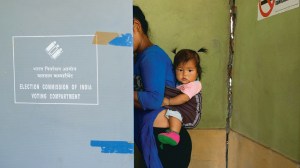- India
- International
Coronavirus outbreak highlights China’s dominance over pharmaceutical industry
Although the slowdown in Chinese manufacturing has disrupted the supply chains of many goods, the impact on the drug industry has helped highlight the national security implications of China’s dominance over the pharmaceutical industry.
 In recent decades, active state support from Beijing and Western drug companies eager to shift production to cheaper destinations has facilitated China’s emergence as the most important global source for pharmaceutical products and medical devices. (Representational Image)
In recent decades, active state support from Beijing and Western drug companies eager to shift production to cheaper destinations has facilitated China’s emergence as the most important global source for pharmaceutical products and medical devices. (Representational Image)
As the coronavirus spreads far and wide, the global dependence on China for drugs and medical supplies has come into sharp focus. In both the US and Europe, the shortage of essential drugs to treat the victims of the virus is strengthening the arguments for restoring some domestic production of pharmaceuticals. Although the slowdown in Chinese manufacturing has disrupted the supply chains of many goods, the impact on the drug industry has helped highlight the national security implications of China’s dominance over the pharmaceutical industry.
In recent decades, active state support from Beijing and Western drug companies eager to shift production to cheaper destinations has facilitated China’s emergence as the most important global source for pharmaceutical products and medical devices. America and Europe are said to import nearly 80 per cent of their antibiotics from China. India is also an important supplier of generic drugs to the Western world, but it is itself dependent on massive imports of active pharmaceutical ingredients (APIs) from China. The reduction in supplies from China after the virus breakout has been accentuated by the recent decision of Government of India to limit the export of common drugs like paracetamol.
Well before the current crisis, there had been warnings in the US about the national security risks from the massive reliance on external sources for basic medicines. Late last year, the US-China Security Review Commission, established by the US Congress, pointed to the prospects of China weaponising its dominance over pharmaceutical production and its massive consequences for healthcare in the US. The report also pointed out that the Chinese government promotes and protects the nation’s pharmaceutical companies to the disadvantage of foreign competitors and that leaves other nations little leverage with China.
While the current international focus is on the supply chains in the pharmaceutical sector, there has been growing recognition of the need to limit the expansive exposure to China in many different sectors. US President Donald Trump’s trade war against China is premised on the conviction that his predecessors had let Beijing hollow out America’s industrial base in the name of economic efficiency.
Also read | First time in India, anti-HIV drugs used on Italian couple with coronavirus in Jaipur

Trump’s case for bringing manufacturing back to the America — by challenging the traditional framework of international trade — was not just economic. It also had a strong national security argument — that the US cannot rely on China for servicing its national security needs in a range of sectors from digital components and drugs. Supporters of economic globalisation had countered these arguments by saying that tight interdependence will reduce the incentives for taking unilateral advantage by nations.
But critics have pointed to the fact that China was turning its role as the “world’s factory” into a powerful leverage. The Chinese decision to stop rare earth exports to Japan during 2010 in relation to a minor political dispute had led many to put up red flags. Since then, China’s greater political assertiveness and challenge to Western dominance in critical areas have strengthened the case in the West to regard China as challenge if not an outright threat. As the bipartisan political consensus in the US and Europe in favour of a strong economic partnership with China began to break down in recent years, the case for de-coupling has gained much traction.
The history of statecraft suggests that it was quite common for states to use economic leverage for strategic gains. This involved seeking monopoly of strategic commodities and denying the opponent access to critical resources. Access to food, fuel and other strategic materials acquired special importance for warfare in the industrial age. Through the Cold War, both America and Russia sought to corner strategic resources around the world. They also adopted policies for stockpiling special materials for use during conflicts. Sustaining a strategic petroleum reserve, for example, was a major priority for the US during the Cold War.
In pictures | Before and after: Images show empty tourist attractions amid coronavirus outbreak
The importance of hoarding resources at home and denying it to one’s adversaries seemed to diminish amidst great power harmony and economic globalisation that flourished after the Soviet Union collapsed. The erosion of that moment in the last few years has set up new tensions between the competing imperatives on Western governments. While the logic of security compels the state to limit strategic economic exposure, the logic of capital demands policies that reduce costs of production and increase the margins of profit. This tension has been at the heart of the recent Western debates on the China question.
In the US, Wall Street as well as Silicon Valley have been great champions of economic efficiency, unhindered globalisation, and deeper integration with China. But the political leadership is divided. Trump’s supporters, for example, call for reorganising the economic relationship with China and restoring the domestic industrial base. The front-runner in the race for the Democratic Party’s presidential nomination, former Vice President Joe Biden, has dismissed the China threat and questioned the wisdom of Trump’s trade war.
The uneven dispersal of strategic resources and differences in the levels of development mean there will always be a significant distribution of global production of critical goods across borders. While absolute “self-sufficiency” is impossible to achieve, the political pressures to move away from the current orthodoxies of uninhibited economic globalisation, especially in the strategic sectors, have begun to mount in the Western world.
Editorial | A global response to coronavirus is needed
In the health sector, meanwhile, large continental entities like the US, Europe and India are likely insure against over-reliance on a single source for life-saving drugs. They are likely to find ways to shorten the supply chains, expand domestic production and explore coordination among like-minded nations.
This article first appeared in the print edition on March 10, 2020 under the title ‘Medicines and frontiers’. The writer is director, Institute of South Asian Studies, National University of Singapore and contributing editor on international affairs for The Indian Express.
EXPRESS OPINION
More Explained
Apr 20: Latest News
- 01
- 02
- 03
- 04
- 05









































